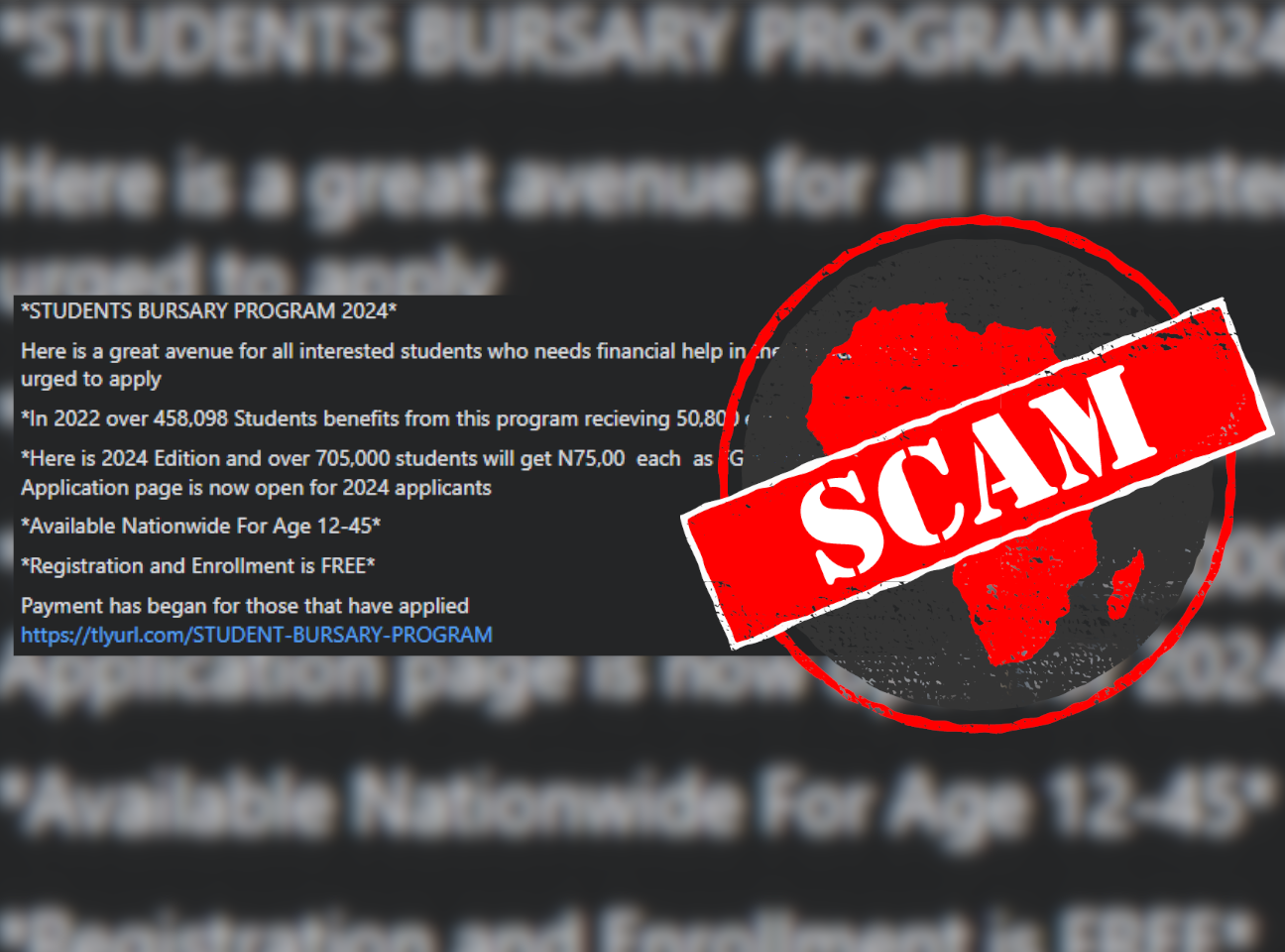IN SHORT: A message circulating on WhatsApp and social media claims that the federal government has approved a N75,000 (US$50) bursary programme for Nigerian students in 2024. But this is false.
“STUDENTS BURSARY PROGRAM 2024. Here is a great avenue for all interested students who need financial help in their Education are urged to apply,” reads a message shared on WhatsApp.
“In 2022, over 458,098 Students benefitted from this program receiving N50,800 each. Here is the 2024 edition and over 705,000 students will get N75,00 each as FG increases the fee.”
The message also says applications for 2024 are open to those between the ages of 12 and 45. It adds that registration and enrollment are free and that payments to applicants have begun.
We found the same post on Facebook here, here, here, here and here. In 2023, the same posts were shared here, here, here and here. A similar post was also shared in 2022.
But how true is this claim and did the federal government approve it? We checked.

Beware of scam!
In 2022, the federal government launched a portal for education students to apply for bursaries. The then education minister Adamu Adamu announced that undergraduate students in public universities studying education would receive N75,000 per semester, while college students would get N50,000.
This initiative aligned with former president Muhammadu Buhari's commitment to education reform, as announced during the 2021 World Teachers' Day celebration in Abuja, the country’s capital .
But the application period for those funds has lapsed and the website administering the bursaries is no longer functional.
Africa Check didn’t find any media reports from credible sources that confirmed the number of beneficiaries or the figures quoted for 2024 in the viral message. If this was another initiative by the federal government or another state agency, it would have been reported on by reliable media outlets.
When we checked other posts shared on Facebook since 2022, we found that the posts were identical and the numbers quoted remained the same. This was a red flag that the newer posts were also false.
We clicked on the link in the message and were led to a lottery site after submitting false personal details. This is a clear indication of engagement bait.
Our research shows the claim is false. To protect yourself from scams online, read our guide.
Republish our content for free
For publishers: what to do if your post is rated false
A fact-checker has rated your Facebook or Instagram post as “false”, “altered”, “partly false” or “missing context”. This could have serious consequences. What do you do?
Click on our guide for the steps you should follow.
Publishers guideAfrica Check teams up with Facebook
Africa Check is a partner in Meta's third-party fact-checking programme to help stop the spread of false information on social media.
The content we rate as “false” will be downgraded on Facebook and Instagram. This means fewer people will see it.
You can also help identify false information on Facebook. This guide explains how.




Add new comment